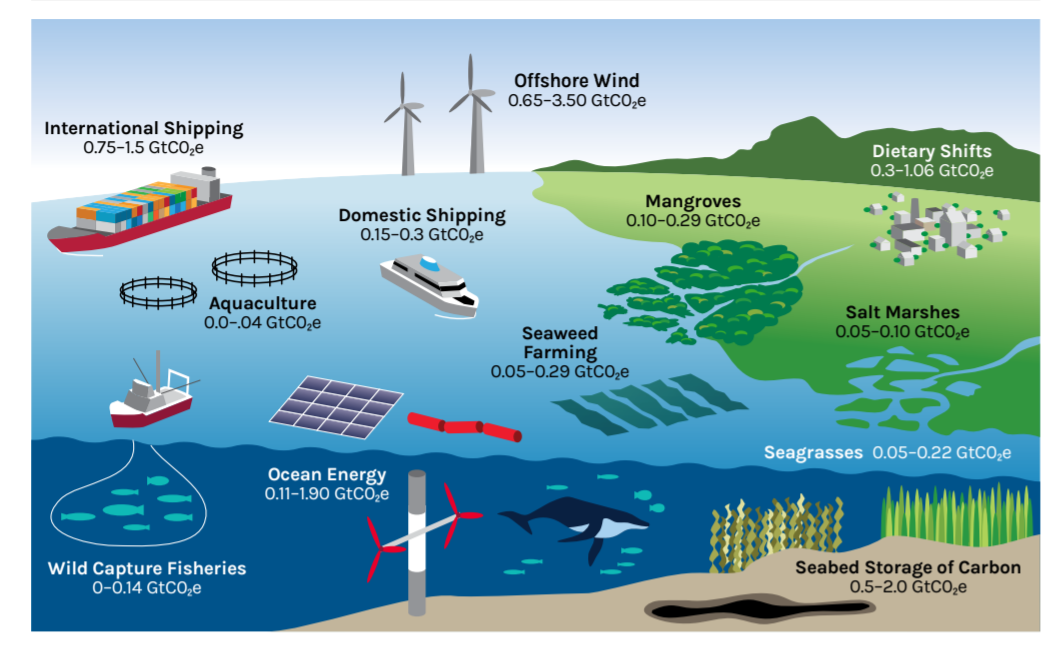Governments need to take the world’s oceans more strongly into account while considering how to curb greenhouse emissions and adapting to the impacts of climate change, a new report issed by UN Climate Change urged.
As explained, the ocean has currently absorbed around 90% of the heat generated by rising greenhouse gas emissions trapped in the Earth’s system and has taken in 30% of carbon emissions.
[smlsubform prepend=”GET THE SAFETY4SEA IN YOUR INBOX!” showname=false emailtxt=”” emailholder=”Enter your email address” showsubmit=true submittxt=”Submit” jsthanks=false thankyou=”Thank you for subscribing to our mailing list”]
This has caused significant changes, including ocean warming, acidification, deoxygenation and sea level rise, with severe impacts on ocean and coastal life and the lives and livelihoods of coastal communities.
To date, the ocean has been a critical buffer to change. But tipping points are being reached and ocean risk is increasing.
A global average temperature rise of 2 degrees Celsius – the upper warming limit of the Paris Agreement – would result in destruction of 99% of the world’s corals, with devastating consequences. Whilst in Arctic regions, tipping points may have already been reached such that adaptive practices can no longer work.
For too long the ocean has been out of sight, out of mind, and largely absent from global policy conversations on climate change. But the tide is turning. We have the knowledge, policy tools and incentives required, and now is the time to act together.
….writes Tosi Mpanu-Mpanu, Chair of the UNFCCC Subsidiary Body for Scientific and Technological Advice in the report.
The good news is that many countries are considering increasing ambition with regard to the ocean in their nationally determined contributions and national adaptation plans.
Ocean action and climate action are intrinsically linked and must be strengthened through breaking down silos and joining of forces to provide the engagement and action needed, based on the best available science.
In light of the situation, Dr Jane Lubchenko, Expert Group Co-Chair of the High Level Panel for a sustainable ocean economy, reported on the ways in which oceans can be a place for action on mitigation, with the potential to provide around 20% reduction in emissions needed by 2050, in order to keep global temperatures to 1.5 degrees Celsius.

Among others, these actions include:
- promoting ocean-based renewable energy
- shifting ocean-based transport including freight and passenger shipping to low carbon
- protection and restoration of blue carbon and other coastal and marine ecosystems
- moving fisheries, aquaculture and dietary shifts away from emission intensive land-based protein sources (e.g. red meat) towards low-carbon, ocean-based protein and other sources of nutrition.
The dialogue also considered adaptation options and opportunities in the ocean and coastal zones. As informed:
Nature is a fundamental part of ocean resilience to climate change. Adaptation activities include establishing and maintaining climate-smart marine protected areas, supporting climate-smart fisheries and small-scale fisheries, ecosystem-based adaptation, sustainable natural resource management, and protecting and restoring coastal ecosystems.
The outcomes of the Ocean Dialogue include recommendations for ways forward. Key decisions need to be taken by governments, including at the upcoming UN Climate Change Conference COP26. These could be to:
- Recognize the interconnectedness of the ocean, climate change and nature.
- Strengthening understanding that ocean action is climate action and ocean finance is climate finance – and vice versa.
- Increase ambition that includes ocean action and integrate ocean-based solutions into Nationally Determined Contributions, National Adaptation Plans and other national processes.
- Strengthen the inclusion of ocean-related issues within relevant aspects of the work of UNFCCC workstreams, constituted bodies and global stocktake.
- Hold regular dialogue under the UNFCCC process to continue to build understanding and strengthen ocean and climate action to move forward bluer.





























































